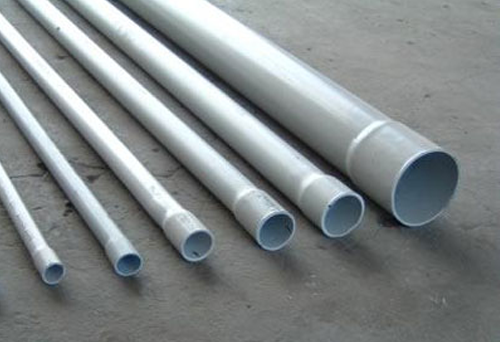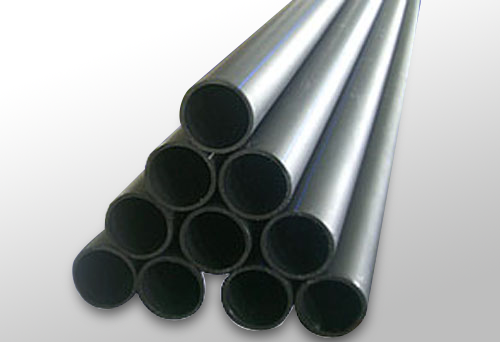PVC vs PP Pipe
Polyvinyl Chloride Pipe

Polypropylene Pipe

Some people argue that it isn’t the best option for underground piping because it can’t be located as easily as metal pipes. However, a new underground electrical locator called the AML PVC Pipe Detector from SSI Locators is revolutionizing the way people locate buried PVC pipe. Locating subsurface PVC pipe can be difficult, so it requires a unique process. Using technology that was developed originally for lunar exploration, the AML pipe detector can find almost any buried metallic or non-metallic substance through most surface types. This means it’s not only the best PVC pipe locator, it’s a great wire locator, gas pipe locator and buried cable locator.
PVC has a relatively high tensile strength and modulus of elasticity (the description of an object’s tendency to be formed elastically). The water main detection and sewer detection industries require their workers to be knowledgeable of maximum deflection, or the most bend a particular flexible conduit like PVC pipe can withstand. When a contractor uses buried PVC pipe, it’s imperative that he or she verifies the pipe’s maximum deflection as well as the embedment process to ensure it remains intact under the pressure of the surrounding soil. The tighter a PVC pipe is embedded, the more strength it will have because the pressure of the weight load on top of it will be dispersed into the surrounding embedment rather than into the walls of the pipe. A PVC pipe detector can be used to locate subsurface PVC pipe and underground PVC pipe used in many applications such as chilled water distribution, chemical processing, industrial plating and irrigation.
Another increasingly common piping material is polypropylene (PP). Proponents will tell you it’s lightweight, yet as strong as high-density polyethylene. Polypropylene pipes can be used at high temperatures, while other thermoplastics like PVC can’t take the heat. Polypropylene pipe is resistant to many reagents such as sulfuric acid and caustic soda, and also resists abrasion. Pipe detection experts know to not use PP with strong oxidizing acids, such as chlorinated hydrocarbons. The AML PVC Pipe Detector can locate nearly any subsurface material with an edge, so it won’t discriminate based on the kind of thermoplastic used in the pipes.
In fact, the AML is the most all-encompassing pipe locator available, and it is exclusive to SSI Locators, Inc.
The introduction of PP into the sanitary sewer market could be cause for concern to wastewater utilities. Claims have been made about its performance, but a lack of rigorous testing means most of the claims can’t be verified. Many people have questions regarding its joint integrity, possible reduced safety factor, and limited options for fittings and lateral connections. These viable concerns reiterate a need to exercise caution when considering PP pipe over PVC pipe. Withstanding the test of time, PVC pipe boasts low maintenance, exceptional joint integrity and a high safety factor, backed by repeated tests. There’s a vast array of fittings for connections, which helps installers avoid compromising the system’s integrity by using cut-in fittings. PVC pipe is suitable for the most difficult applications. Sewer detection and water main detection experts will tell you that PVC is the most commonly used material for gravity sewer pipe. It owns an estimated 80% of the market share. The quality and performance of underground PVC pipe has been validated by universities, government agencies, engineers and installers. Trenchless Technology Magazine ranked PVC the highest in a 2010 buried pipe market survey. It has been rated as the easiest to maintain and longest-lasting pipe material available.
PP JUST DOESN'T MEASURE UP WHEN DIRECTLY COMPARED TO PVC
PP just doesn’t measure up when directly compared to PVC. For proven performance, cost effectiveness and sustainability, PVC should be your material of choice for any water and wastewater systems. Regardless of the thermoplastic used in the underground pipes, the AML pipe locator can pinpoint their location.
The All Materials Locator is the best tool for locating underground pipes. The AML is a patented PVC pipe detector and can locate many other buried objects, making it an effective gas pipe locator, wire locator and buried cable locator. Unlike GPR, which can be less effective in certain conditions, the AML functions as a PVC pipe locator in almost every surface type including standing water, mud, clay and snow. It is simply the best all-around underground electrical locator on today’s market.
Pipe detection was easier when all plumbing was made of lead piping, but by the mid 1990s, lead was no longer used as a component of new plumbing. Some of the chemicals used to make PVC are dangerous, but these usually remain tightly bound to the plastic. Vinyl chloride, the main ingredient of PVC, was discovered to be a carcinogen in the 1970s. Soon after, the EPA started regulating vinyl chloride air emissions and levels in drinking water. While locating buried PVC with a pipe detector can be more challenging today than it was in the heyday of lead pipes, using a PVC pipe detector like the AML can really simplify the job.

Comments are closed.